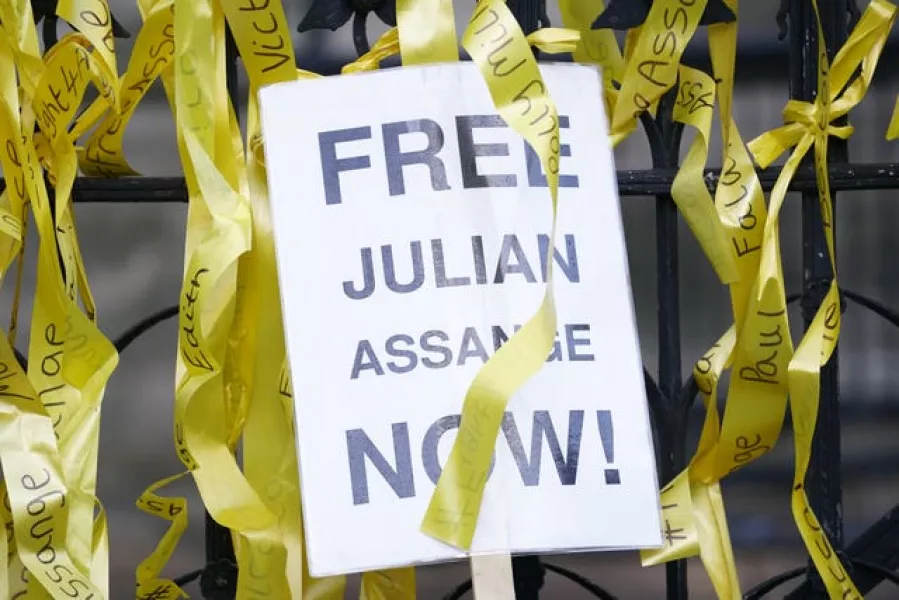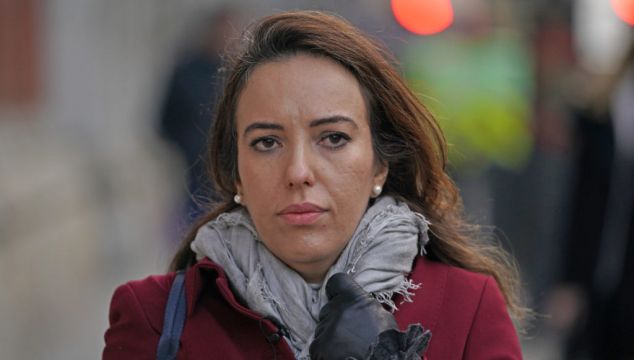Lawyers for Julian Assange have started the process for a Supreme Court appeal over his extradition to the US, his fiancée has said.
Stella Moris said the WikiLeaks founder filed an application to bring an appeal shortly after 11am on Thursday.
As his lawyers have applied to take his case to the Supreme Court, the UK’s highest court, judges must now decide whether to hear the case before any appeal takes place.

Ms Moris, a lawyer and the mother of his two children, said in a statement on Thursday the High Court must first “certify that at least one of the Supreme Court appeal grounds is a point of law of general public importance” before the application has a chance to be considered by the Supreme Court.
A decision is not expected before the third week of January, Ms Moris added.
Birnberg Peirce Solicitors, who are representing Assange, said in a statement: “We believe serious and important issues of law of wider public importance are being raised in this application.
“They arise from the court’s judgment and its receipt and reliance on US assurances regarding the prison regimes and treatment Mr Assange is likely to face if extradited.
“Because this application is now the subject of judicial consideration, his lawyers do not propose to comment further at the moment.
“We hope and trust the High Court will grant a certificate on the questions raised as well as giving permission to appeal in order that they can thereafter be fully argued before the Supreme Court.”
The application comes two weeks after Lord Chief Justice Lord Burnett, sitting with Lord Justice Holroyde, ruled that Assange should be sent to the US to face espionage charges.

The 50-year-old is wanted in the US over an alleged conspiracy to obtain and disclose national defence information following WikiLeaks’ publication of hundreds of thousands of leaked documents relating to the Afghanistan and Iraq wars.
US authorities brought a High Court challenge against a January ruling by then-district judge Vanessa Baraitser that Assange should not be sent to the US, in which she cited a real and “oppressive” risk of suicide.
After a two-day hearing in October, the High Court ruled in favour of the US government on December 10th.







